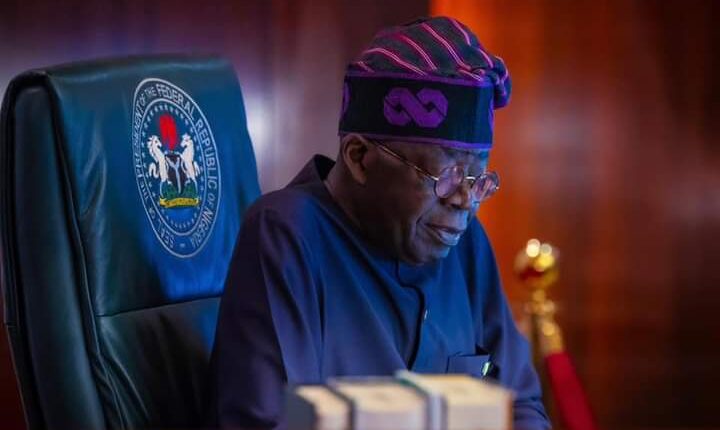Today, however, Nigeria is home to the largest single-train refinery in the world, with the capacity to process 650,000 barrels of crude per day
Nigeria: The Changing Governance Story
By Temitope Ajayi
Sahara Weekly Reports That Tracking many stories of remarkable progress currently taking place in Nigeria can be a challenging task. This is so because these important stories are lost to some who daily indulge in the cacophony of adverse reports. These negative news often dominates the headlines.

With a 24-hour news cycle that tends to focus mainly on distasteful narratives, several Nigerians have been made to accept the view that nothing good is happening in their country.
Those who rely on the mainstream media and social media as the only sources of news and information they consume are the worst hit by the cycle of misinformation that portrays our country as descending rapidly to the edge of the precipice. However, the reality is different: the country is making progress in leaps and bounds.
Late Swedish physician and Professor of International Health at Karolinska Institute, Hans Rosling, his son, Ola Rosling, and daughter-in-law, Anna Rosling, extensively dwell on this subject in “Factfulness: Ten Reasons We’re Wrong About the World – and Why Things Are Better Than You Think,” a book published in 2018. In the book, the authors demonstrate that most people are made to hold the wrong notion about the state of the world because the media project data, analyse trends and select stories to make people assume that things are getting worse around them. The authors assert that a majority of people view the world as poorer, less healthy, and a more dangerous place to live in than it actually is. In other words, many people believe they are living in a worse period in the history of mankind because of misinformation.
The same situation the Roslings describe in their book is at play in Nigeria, where individuals, interest groups, activists, analysts, self-serving politicians, and opposition elements constantly project and amplify negative stories.
It is as if we are in a race with those who can say the most horrible things about our country. Yet, we have an abundance of good stories to tell the world. We seem so numb to the good news that we are dismissive of breakthroughs and innovative trends. For instance, we downplay the significance of Dangote Petroleum Refinery and its possibilities to reflate the economy.
Many people forgot so soon that we had been importing petroleum products for over three decades because the state-owned refineries are moribund. Our national economy bled, and the country was in a fiscal cul-de-sac for those years as a result of subsidy payments on petroleum products.
Today, however, Nigeria is home to the largest single-train refinery in the world, with the capacity to process 650,000 barrels of crude per day. Cynics do not see this as a breakthrough.
Nigerians who are 60 years old and below started seeing modern rail infrastructure in 2016 when the All Progressives Congress-led administration of former President Muhammadu Buhari commissioned the standard gauge rail system, beginning with the Abuja-Kaduna route, later Lagos-Ibadan and then the Warri-Itakpe.
The national rail modernisation project is progressing with Kano-Katsina-Maradi and Kano-Kaduna standard gauge rail projects at different stages of completion. The contractor working on the rehabilitation of the Port Harcourt-Maiduguri narrow gauge recently announced the completion of the Port Harcourt-Aba section. While the Federal Government is rallying stakeholders to promote economic integration across the country, the Lagos State Government recently launched two metro rail lines -Blue and Red Rail lines – as part of the state’s elaborate master plan to build a modern and efficient megacity. Like Lagos State, there are visible signs of remarkable, quantifiable progress in several other states, including Kaduna, Kano, Akwa-Ibom, Rivers, Kebbi, Borno, Gombe, Oyo, Ekiti and Ogun, among others.
A few weeks ago, the President Bola Tinubu-led administration embarked on the construction of the 700 kilometres Lagos-Calabar Coastal Highway that will connect nine coastal states in another bold move to bolster economic growth further and open up the country to productive economic activities.
While it may be very easy for critics and other armchair analysts to ignore these developments and their significance to remaking Nigeria, there is no gainsaying that these projects and many more that are ongoing or about to be instituted across critical sectors are the core of President Tinubu’s Renewed Hope Agenda. Indeed, it is hard to process why the so-called critics and cynics can not see the Lagos-Calabar Highway project as a clear demonstration of the President’s commitment to harnessing the potential of our renascent Blue Economy.
Despite what is bandied by the most vociferous critics




 Business6 months ago
Business6 months ago
 celebrity radar - gossips4 months ago
celebrity radar - gossips4 months ago
 celebrity radar - gossips4 months ago
celebrity radar - gossips4 months ago
 Business3 months ago
Business3 months ago









You must be logged in to post a comment Login